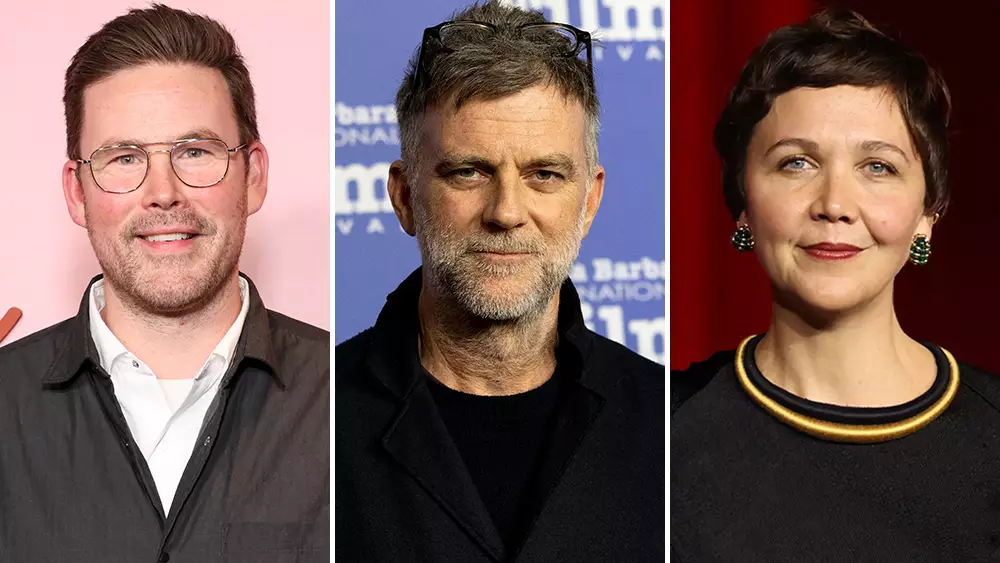Warner Bros is making significant waves in Hollywood with a string of strategic release-date changes that could redefine its financial prospects this year. In an industry where box office returns determine a studio’s success or failure, these adjustments signal not just agility but a compassionate understanding of audience dynamics. With a tumultuous year already marked by multiple auteur-driven films, some of which have stumbled, Warner Bros aims to leverage its unique offerings to ensure that Burbank not only stays afloat but heads toward profitability.
The competition within the cinematic landscape is fierce. Viewers have become increasingly discerning, pushing studios to strike a delicate balance between creativity and financial viability. By moving key titles—such as Zach Cregger’s much-anticipated genre film *Weapons*—to new release dates while carefully coordinating them with IMAX bookings, Warner Bros demonstrates a keen awareness of market trends and cinema capacity.
Maximizing IMAX: The Heart of Release Adjustments
The recent scheduling changes by Warner Bros are a textbook case of strategic optimization—an act of “lifting and shifting” that emphasizes the importance of IMAX screen availability. As cinemas develop their schedules, the demand for premium screening formats has grown. Unlike regular releases, IMAX films not only provide immersive experiences but also tend to attract larger audiences willing to pay higher ticket prices—a win-win for studio profits.
It’s this interplay of cinematic format and audience engagement that makes moving *Weapons* from its original MLK weekend slot in 2026 to August 8 noteworthy. The movie boasts a stellar cast including Josh Brolin, Julia Garner, and Alden Ehrenreich, making it a potential blockbuster. Competing against Disney’s *Freakier Friday*, an unmistakably family-oriented sequel, highlights Warner Bros’ commitment to diversifying its audience pool while echoing that blockbuster films don’t necessarily have to be layered with critical acclaim to succeed.
Creative Conflicts: The Impact on High-Profile Projects
In allowing *Weapons* to soar in its new timeline, Warner Bros had to evaluate the implications for other high-profile projects. The decision to move Paul Thomas Anderson’s *One Battle After Another* to September 26 was particularly astute, considering the movie’s hefty production cost of around $140 million. Not only does the new date provide a competitive position against other genres, such as horror films like Lionsgate’s *Saw XI* and Universal’s *Gabby’s Dollhouse: The Movie*, but it also allows for IMAX and 70mm screenings to enhance audience experience.
Furthermore, the repositioning of *The Bride!* to a date that aligns with established tentpole releases indicates foresight. March is increasingly becoming a lucrative month for studios—as evidenced by successes like *Dune: Part Two* and *The Batman*—and it makes sense for Warner Bros to capitalize on that momentum instead of competing in a crowded summer.
The Family Friendly Component: Curbing Competition with The Cat in the Hat
Warner Bros plans to bring *The Cat in the Hat* to theaters on February 27, placing it one week ahead of Disney/Pixar’s anticipated *Hoppers*. This strategic release timing allows for a wave of promotional opportunities overseas, giving the family feature a foothold in saturated markets. The film’s voice cast, including stars like Bill Hader and Quinta Brunson, positions it well to attract diverse audiences, making it particularly relevant in an era where representation and relatability are key in family entertainment.
The juxtaposition against Paramount’s *Scream 7* creates an intriguing landscape of competition—light-hearted family fun versus horror thrills. The studio’s clever timing is akin to a tactical chess move that anticipates audience preferences and maximizes box office potential while minimizing risk.
The Broader Implications on Warner Bros and Audience Expectations
Warner Bros is clearly seeking to cultivate a narrative of engagement. They are not just releasing films; they’re crafting an experience that addresses consumer habits and preferences in a fast-evolving entertainment climate. The studio’s upcoming offerings, ranging from thrillers to animated adaptations, reflect a diverse roster that aims to attract both loyal fans and new viewers.
In making these thoughtful and calculated release-date adjustments, Warner Bros demonstrates a commitment to both artistic vision and economic stability, forging a path towards a sustainable future in an unpredictable industry. This has the potential to reestablish not just financial success but also a reputation for understanding and meeting audience expectations, setting a high bar for industry peers navigating similar tumultuous waters.
